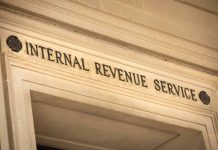
Paying bills is something we all have to do. It can be annoying with so many due dates and the risk of extra fees if we’re late. But, what if there was an easier way? We’re here to show you how to make paying bills easy and organized. With some simple tools and a little effort, you can avoid late fees and make your money life simpler. Let’s learn how!
Handling Bills: Key Strategies for Everyone
Everyone handles their bills differently, and these differences are influenced by their financial habits, personal preferences, and unique life situations. However, no matter how you approach this task, there are some universal strategies that can benefit everyone. Here are a few key tactics to keep in mind:
- Stay Organized
- Set Up Reminders
- Automate Payments
- Review Regularly
- Budget Wisely
- Maintain an Emergency Fund
- Stay Informed
Stay Organized
Keeping bills organized is fundamental. A planned approach not only helps in tracking due dates but also in understanding your monthly expenses. Here are some tips for staying organized:
- Digital Files: Use folders on your computer or cloud storage to keep digital copies of your bills.
- Physical Folders: If you receive paper bills, consider using a file cabinet or binder to categorize and store them.
- Label and Date: Always label and date your bills, whether digital or physical. This makes referencing easier in the future.
- List: Make a list of all your bills, including utilities, credit cards, rent, mortgage, and other loans. Whether you use an app, spreadsheet, or notebook, having all bills in one place serves as a monthly checklist and can lay the foundation for a budget.
- Work Space: Paying bills efficiently begins with creating the right environment. Assign a regular comfortable place for bill-paying, making the task more manageable and allows you to focus.
Set Up Reminders
Through the everyday hustle, it’s easy to forget a due date. Missed payments can lead to unnecessary late fees and can negatively impact your credit score. Here are a few tips on how to set up reminders:
- Phone Alarms: Set up monthly alarms a few days before each bill’s due date.
- Calendar Notifications: Use digital calendars to send you notifications. Mark major bill due dates, typically around the 1st or 15th of each month.
- Sticky Notes: For those who prefer visual cues, a sticky note on the fridge or desk can be effective.
Automatic Payments
Automatic bill payments can help make sure you never miss a deadline. This not only saves time but can also help prevent damage to your credit score from a missed payment. Here are some tips to keep in mind when looking to set these up:
- Bank’s Bill Pay Service: Most banks offer online bill payment services that you can set up with recurring dates. For instance, Bank of America clients can learn how to set up monthly payments using their online banking services.
- Direct Debits: Set up direct debits with service providers so payments are deducted automatically. This removes the stress and time pressure from manual bill payments.
Review Regularly
Overcharges, unnoticed subscriptions, or errors can sneak into bills. By regularly reviewing statements and due dates you keep a close eye on fees and changes made. This helps to make sure you are paying for what you need on time and can quickly see what doesn’t belong. Below are a few practices to keep in mind when reviewing your bills:
- Monthly Checks: Dedicate time each month to go through your statements.
- Always Open Your Bills: Even if you suspect you’re behind, it’s crucial to open and review each bill. This can help you identify fee increases, when rates expire, or a minimum payment amount.
- Coordinate with Paydays: If most of your bills are due when your account balance is low, consider negotiating with bill collectors. Most are willing to work with you and adjust due dates to better line up with your paychecks.
Budget Wisely
Budgeting allows you to see the bigger picture of your finances, ensuring you live within your means and can handle all your bills. Here are some budgeting basics to keep in mind:
- Income vs. Expense: List all sources of income and all monthly expenses to see where your money goes.
- Cut Unnecessary Costs: Once you’ve mapped out your budget, identify areas where you can cut back.
- Know Your Grace Periods: Bills often have a grace period, typically around 15 days, between the due date and when a late fee is charged. Being aware of these can offer some payment flexibility.
Maintain an Emergency Fund
Life is unpredictable. An emergency fund acts as a financial buffer for unexpected bills or changes in income. Here are some tips for building your emergency funds:
- Start Small: Begin by saving a small amount regularly until you have enough to cover at least three months of expenses.
- Dedicated Account: By opening a separate savings account for your emergency fund, you can avoid mingling it with daily expenses.
Bottom Line
Managing bills can feel like a juggling act. With due dates, fees, and the occasional forgetfulness, bills can be quite hard to manage. But, as this guide has shown, it doesn’t have to be so difficult. With practical steps like organizing your bills, setting reminders, using automatic payments, and smart budgeting, you can turn what feels like a monthly chaos into a structured routine. By following these strategies, not only can you avoid the stress of missed payments, but you’ll also have a clearer view of your finances. In essence, it’s all about making bill management simpler, smarter, and more efficient for a more relaxed financial life.




























